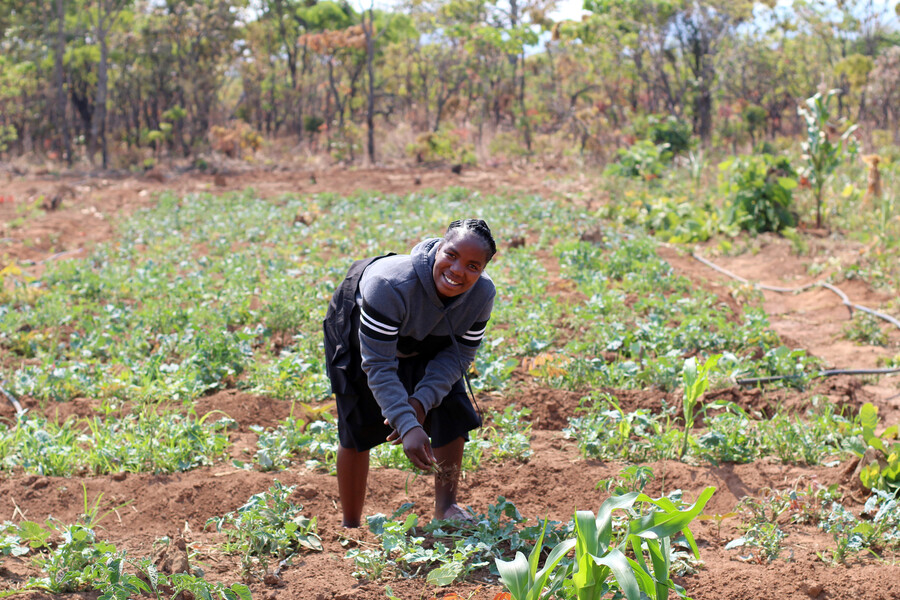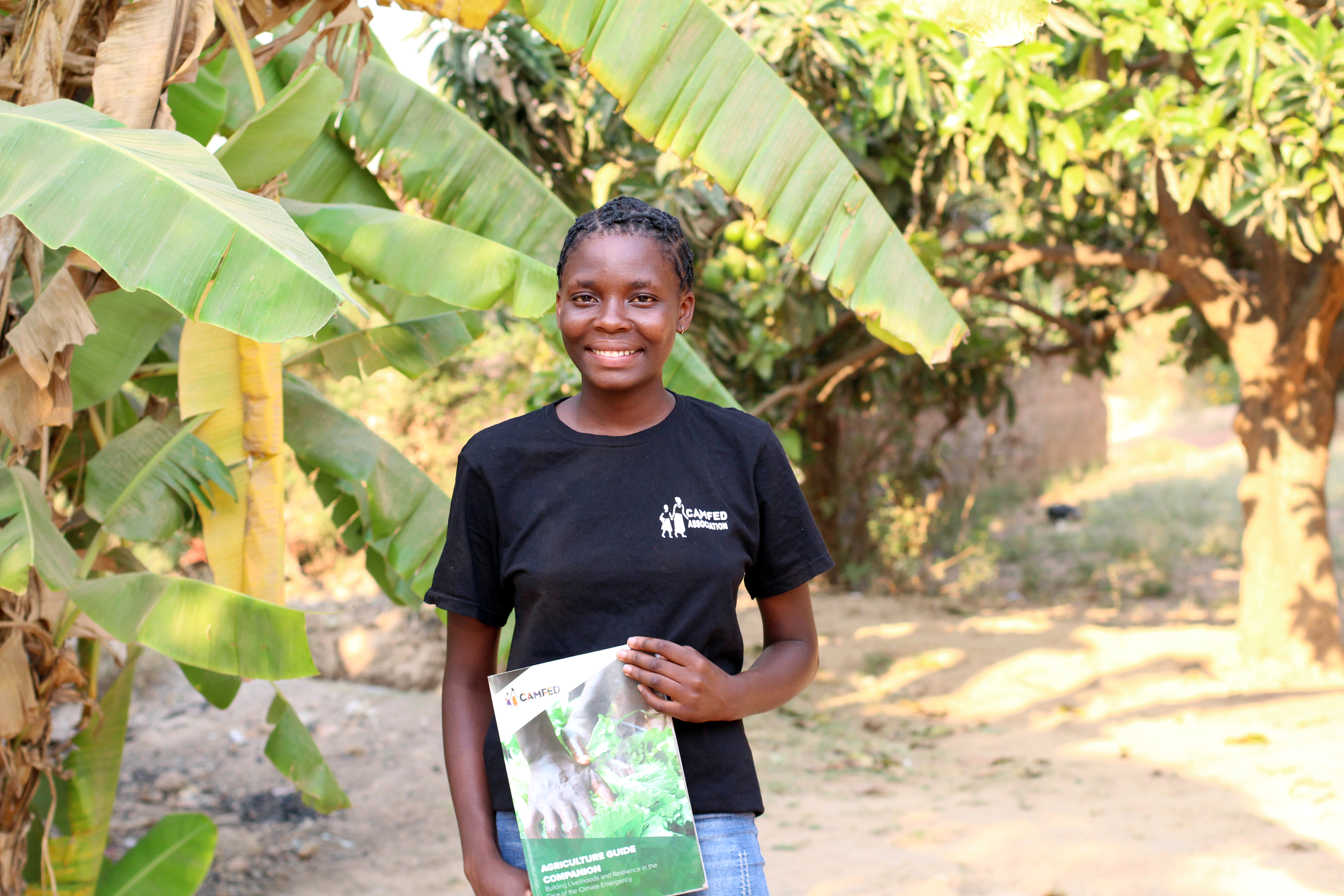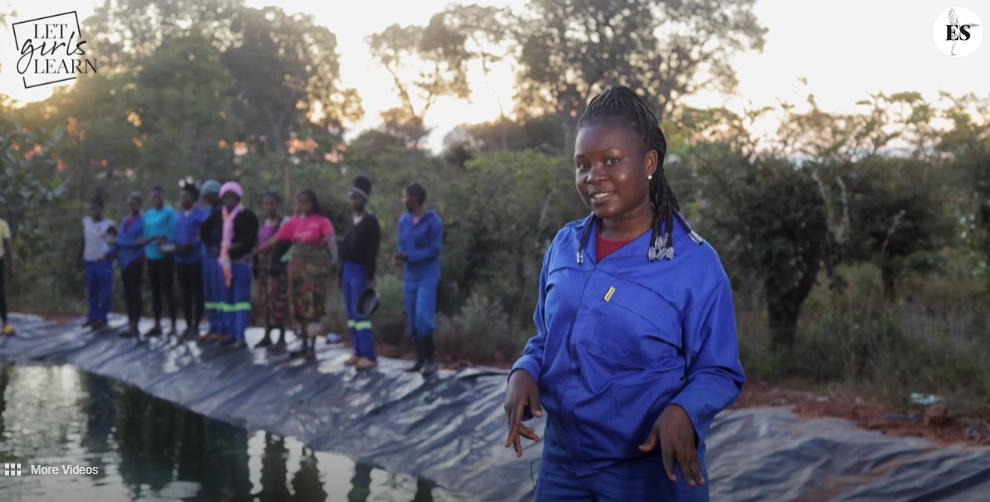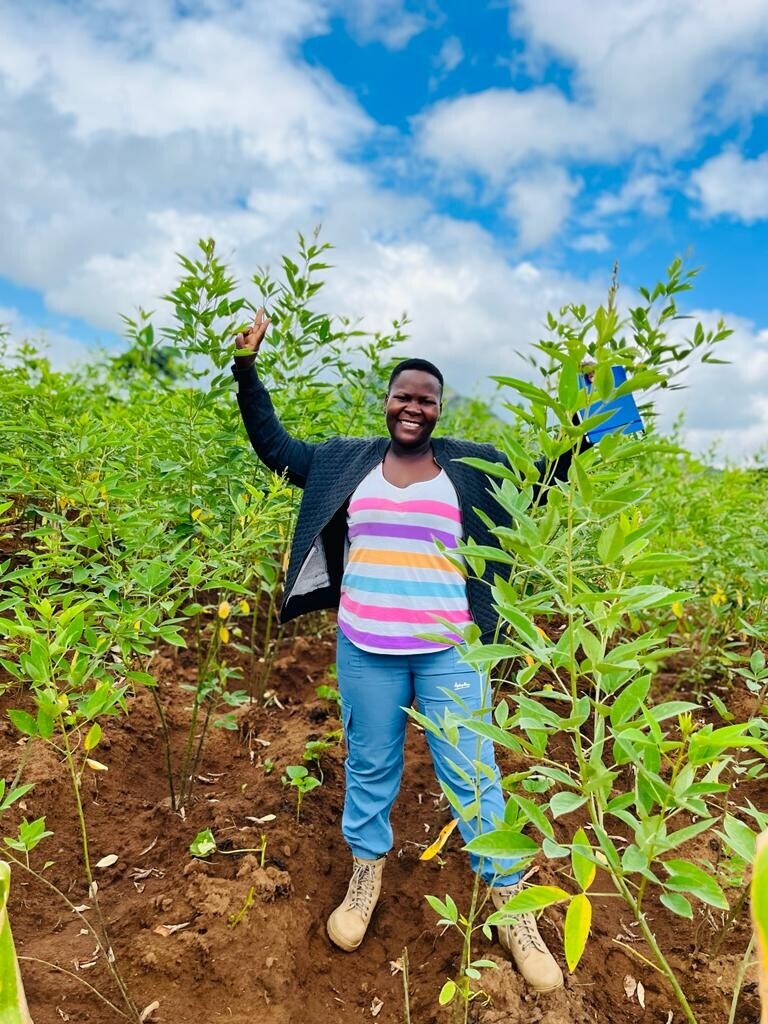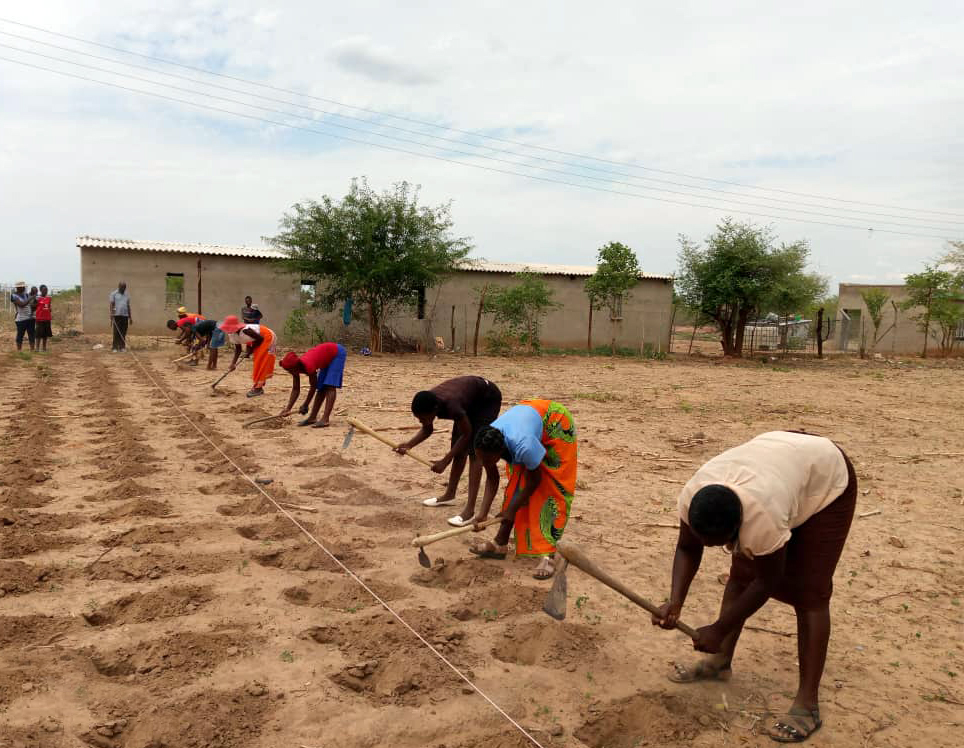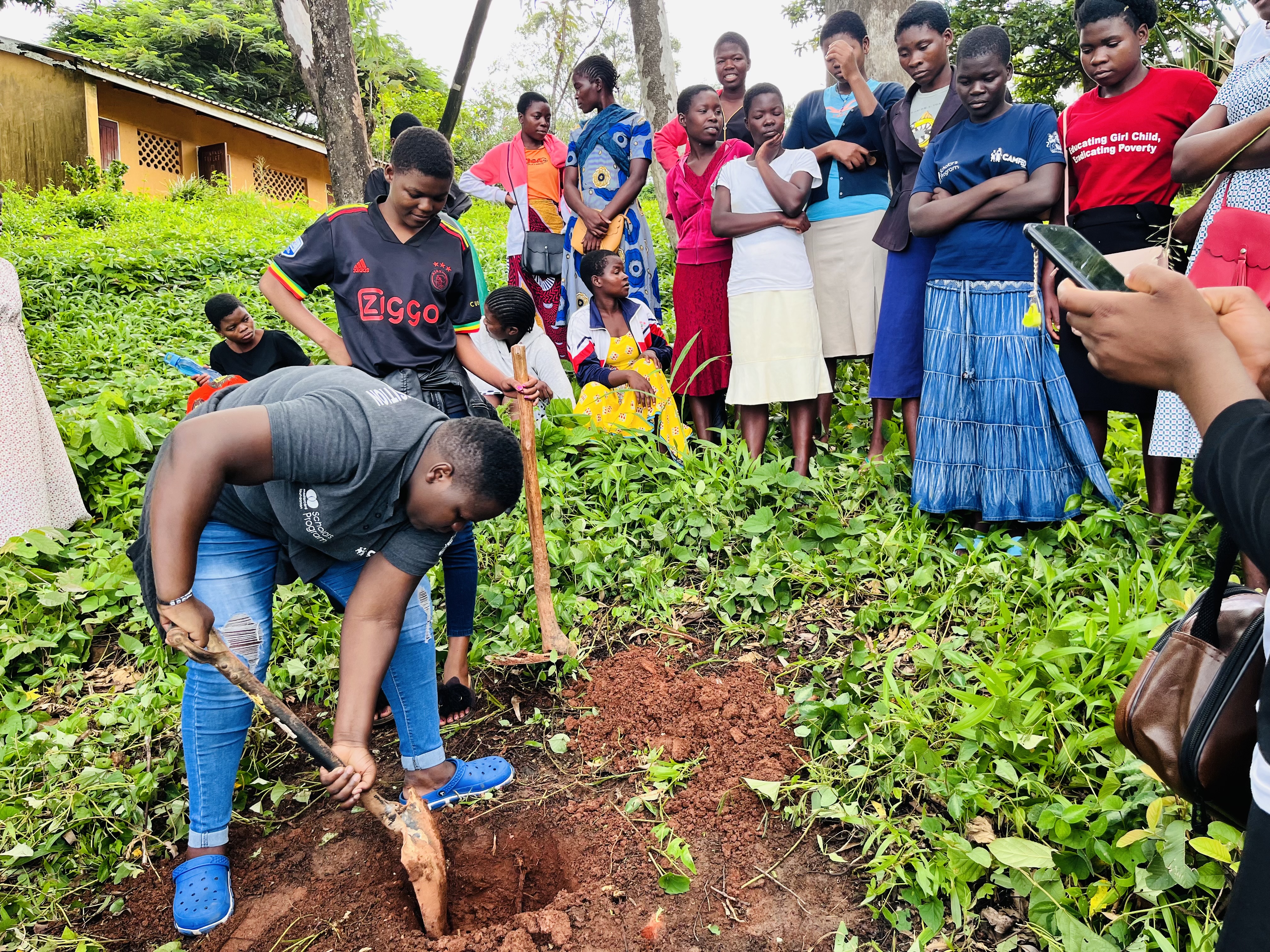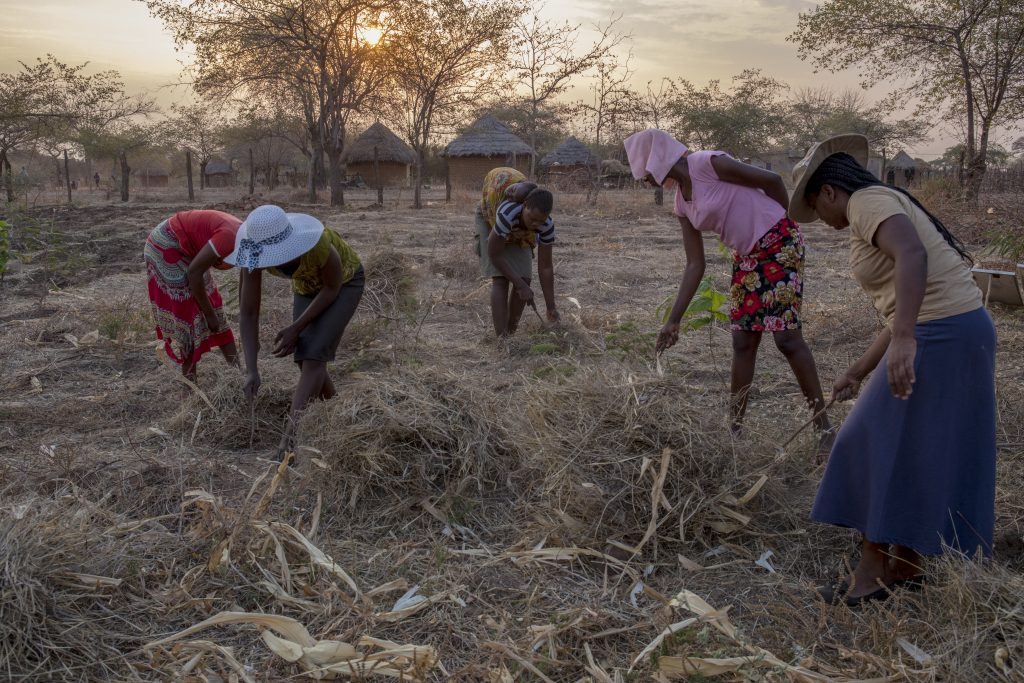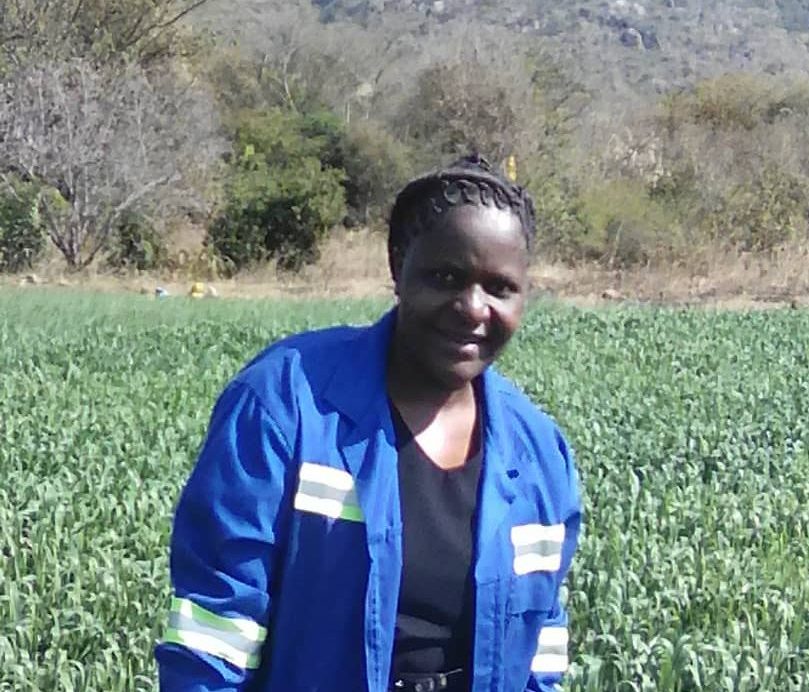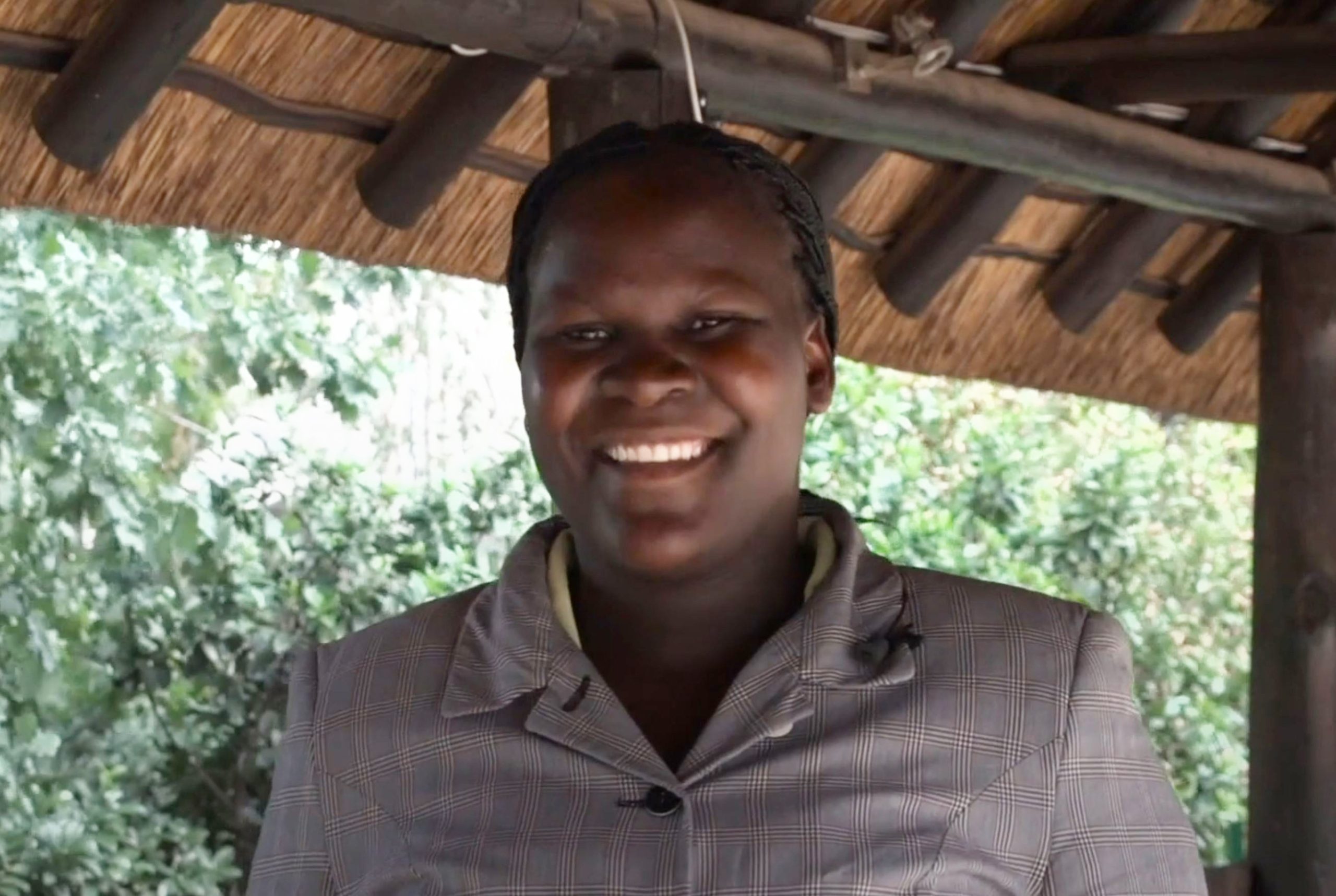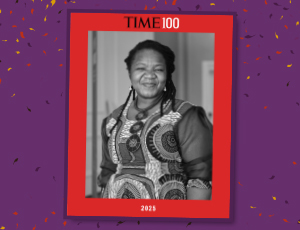More about the cascade model for community outreach
Using a cascade model, Agriculture Guides volunteer their time and expertise to deliver a structured program of support to a group of around 10 female agripreneurs. Regularly meeting in their local community over a period of 6-12 months, the agripreneurs learn about climate-smart farming, food preservation and clean cooking techniques and apply those techniques on their – own or family – small plots of land to build resilience to the climate crisis and improve yields. Learning is hands-on, with Guides often showcasing techniques on their own small-holdings or on community plots and school nutrition gardens.

Women collect dry maize crop leaves for mulching their vegetable garden in Mbire district, Zimbabwe.
Guides work in close collaboration with Ministry of Agriculture Extension Workers and other partners. Techniques blend innovation and Indigenous knowledge and range from affordable water management (such as drip irrigation using waste plastic and planting basins that conserve water) to inter-cropping (growing complementary crops on the same plot of land to increase yields) and agroforestry. Agripreneurs learn how to grow nutritious crops, add value to their agricultural produce to uplift their incomes and to share knowledge with their wider community.
Each Agriculture Guide and 10 agripreneurs together reach 100+ members of their community each year. They focus on the ‘forgotten farmers’ among them – smallholders without access to formal technical assistance or finance to increase the productivity of their land or look after natural resources. These include Parent Support Groups, formed to keep vulnerable children in their communities in school by growing food for school meals, for example.
Agriculture Guides are helping to raise productivity, combat hunger, build resilience to climate shocks, and lower greenhouse emissions, while tackling gender inequity in farming. CAMFED’s Agriculture Guide Program was awarded a UN Global Climate Action Award in recognition of its effective and scalable approach led by young African women.
